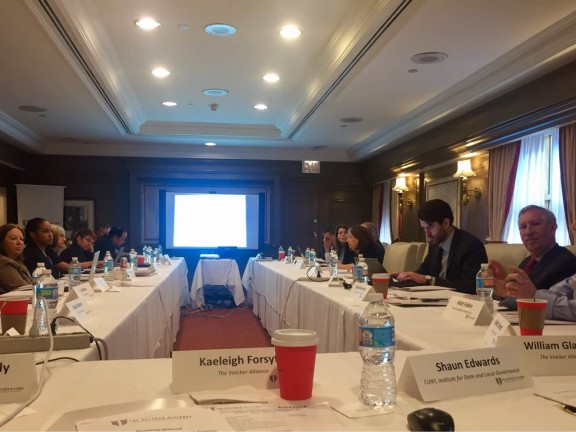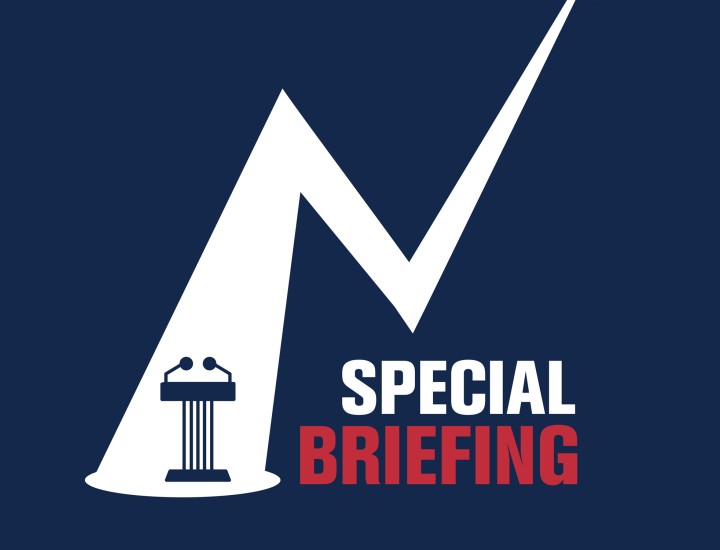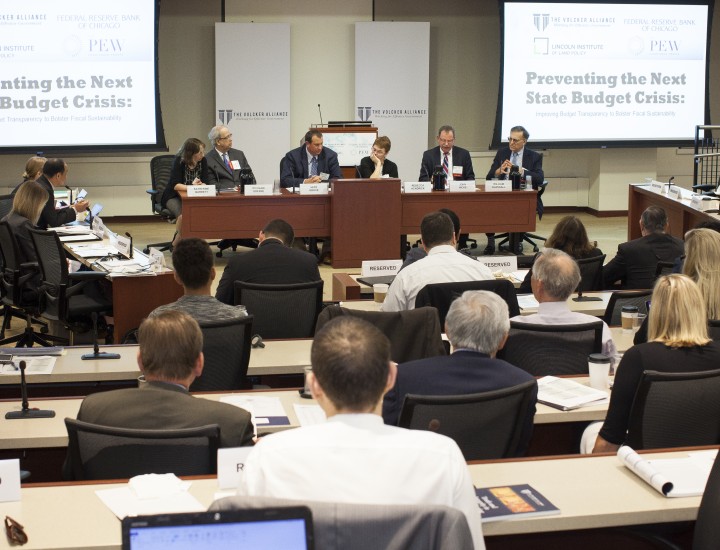Volcker, Ravitch Meet With Academics to Discuss State Budget Research

Professors and graduate students from 11 public administration and policy schools across America gathered in New York in June to review recent state fiscal trends and discuss their preliminary findings for the Volcker Alliance’s Truth and Integrity in Government Finance state budgeting project with Alliance Chairman Paul A. Volcker, President Tom Ross, and Director Richard Ravitch.
Based on a common set of questions on budget processes in all 50 states, the academic teams, aided by Alliance consultants Matt Fabian and Lisa Washburn of Municipal Market Analytics Inc. and special project consultants Katherine Barrett and Richard Greene, found that in fiscal 2016:
- Half of the states failed to make contributions to public employee pension systems that the plans’ actuaries recommended;
- About 20 percent of states filled budget gaps with proceeds of asset sales, upfront payments on financings, or other financial transactions;
- Seven states borrowed funds to close budget deficits, while 17 shifted current-year costs to future years; and
- Only a handful of states fully disclosed the cost of deferred infrastructure maintenance.
In a presentation to the academics, Bill Glasgall, the Alliance’s state and local program director, observed the growing need for transparent budgeting practices that eschew one-time revenue and spending solutions to balance states’ books. He said that since the end of the great recession in 2009, state and local revenue has expanded at about half the rate it achieved following the end of the previous recession in 2001. State revenue is also growing more volatile, putting a premium on having robust rainy day fund reserves, and proposed federal Medicaid and other budget cuts will likely squeeze state funding, he said.
“Federal-state relationships are under stress,” Mr. Volcker told the group.
The 50-state research project follows the 2015 report, Truth and Integrity in State Budgeting: Lessons from Three States, which scrutinized fiscal policy in California, Virginia, and New Jersey. A report detailing state budgeting practices in all states for fiscal years 2015, 2016, and 2017 is expected to be released by the Alliance later this year.
Involving universities in the current project is a key element of the Alliance’s mission, according to Mr. Volcker.
The Alliance’s partners for the Truth and Integrity in Government Finance who joined the New York meeting included representatives of Arizona State University; City University of New York; Cornell University; Florida International University; Georgia State University; University of California, Berkeley; University of Illinois at Chicago; University of Illinois Springfield; University of Kentucky;, University of Minnesota; and University of Utah.
Academics from several of the schools described how their work on the Truth and Integrity project has been integrated into graduate programs as capstone and other projects, and has already led to follow-up research papers based on preliminary Alliance findings.
“The whole purpose of the Volcker Alliance is to spark interest in public administration,” Mr. Volcker said. "This is an opportunity for student training. Let’s launch the conversation.”


